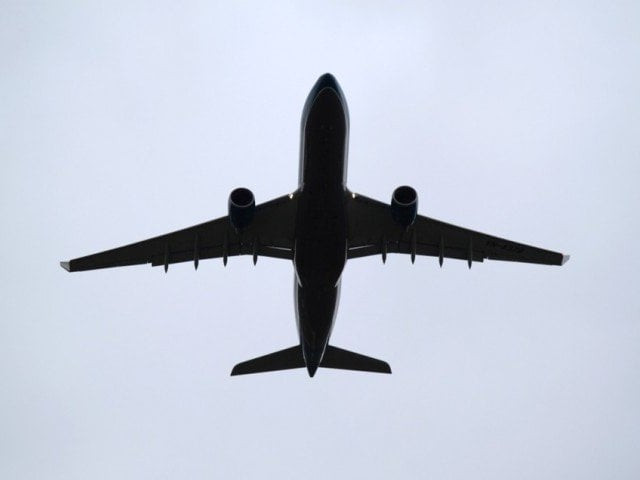Know your rights: Rights of air passengers
The carrier is liable for damages sustained in the event of death or injury of a passenger.

The major air crashes in Pakistan in the last five years have led several people to question the rights that the country affords passengers travelling by air.
None of the 279 passengers on board two passenger flights, Airblue in July 2010 and Bohja Air in April 2012, survived, and their families are still struggling for justice. This week, The Express Tribune examines laws relating to rights of the air passengers.
Constitution and law
The Constitution of 1973 does not mention specifically the rights of air passengers but they are covered in the chapter on fundamental rights, which include security of a person, right to life, etc.
Apart from the constitutional provisions, the laws directly regulating the rights of air travellers include The Pakistan Civil Aviation Authority Ordinance 1982 and The Carriage by Air Act of 2012. These laws deal with a variety of issues — from the reservation of the tickets to air crashes. Under the law, the carrier is bound to abide by the laws concerning the safety of the passengers, provision of better services onboard and compensation in case of any damages – to the passengers or the goods.
Under Section 203 of The Civil Aviation Authority Rules 1994, the operators of the carrier are required to ensure installation of safety devices for the protection of the public at the aerodromes normally used by the operator as directed by the director-general.
Facilities
Under Section 195 of the Act, the air operator cannot permit an aircraft to fly unless he has ascertained by every reasonable means that the aeronautical radio stations and navigational aids serving an intended route, and any planned diversion, are adequate for the safe navigation of the aircraft. He must also ensure that the aerodromes, which are intended to be used for departure and destination, are suitable for the purpose and are adequately manned and equipped.
Insurance
The act declares it binding on the carrier to maintain adequate insurance covering all possible liability. A carrier may be required by the federal government to furnish evidence that it maintains adequate insurance covering its liability under this Schedule. The carrier shall comply with rules that may be notified through publication in the Official Gazette by the Federal Government regarding the obligation of the carrier to maintain adequate insurance coverage.
Physical damages
The carrier is liable for damages sustained in the event of death or injury of a passenger or any other bodily injury suffered by a passenger, if the accident took place on board the aircraft or in the course of any of the operations of embarking or disembarking. The legal heir of any passenger, who may lose his/her life onboard during an accident, is entitled to claim a compensation of Rs5 million.
Goods damages
In the carriage of registered luggage and of goods, the liability of the carrier is limited to Rs1,000 per kilogramme, unless the consignor has made, at the time when the package was handed over to the carrier, a special declaration of the value at delivery and has paid an additional amount. In that case, the carrier will be liable to pay a sum not exceeding the declared sum, unless he proves that the sum is greater than the actual value to the consignor at delivery.
Advance payments
If the passenger dies or is injured due to an aircraft accident, the carrier has to make advance payments without any delays to a person entitled to claim the compensation. Such advance payments shall not constitute recognition of liability and may be offset against any amounts subsequently paid as damages by the carrier.
Claiming compensation
In order to avail financial compensation, the heir of any victim will have to apply to the district judge or the high court, as the case may be, having jurisdiction to issue a succession certificate following the death of the passenger. The certificate will specify the names of the legal heirs.
Published in The Express Tribune, June 25th, 2014.



















COMMENTS
Comments are moderated and generally will be posted if they are on-topic and not abusive.
For more information, please see our Comments FAQ